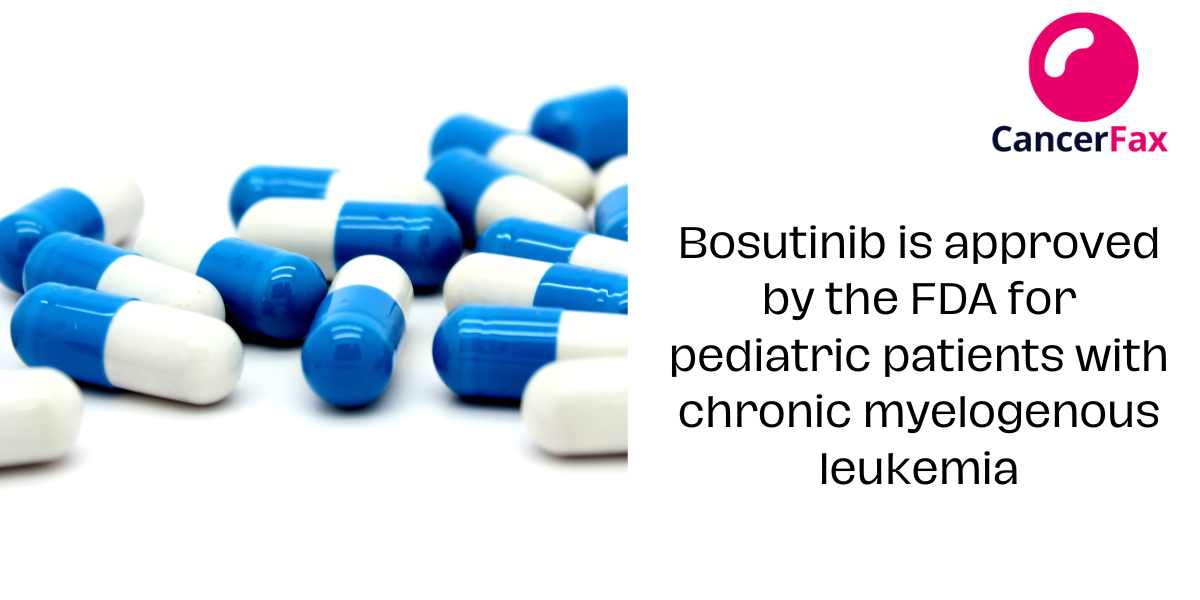Nov 2023: For paediatric patients aged one year and above with chronic phase (CP) Ph+ chronic myelogenous leukaemia (CML), either newly diagnosed (ND) or resistant or intolerant (R/I) to previous therapy, the Food and Drug Administration has approved bosutinib (Bosulif, Pfizer). Additionally, a novel capsule dosage form with 50 mg and 100 mg concentrations was approved by the FDA.
The BCHILD trial (NCT04258943) assessed the efficacy of bosutinib in paediatric patients with ND CP Ph+ CML and R/I CP Ph+ CML. The trial was multicenter, nonrandomized, and open-label, with the goals of determining a recommended dose, estimating safety and tolerability, assessing efficacy, and assessing bosutinib pharmacokinetics in this patient population. The trial included 21 patients with ND CP Ph+ CML treated at 300 mg/m2 once daily and 28 patients with R/I CP Ph+ CML treated with bosutinib at 300 mg/m2 to 400 mg/m2 orally once daily.
Major cytogenetic response (MCyR), complete cytogenetic response (CCyR), and major molecular response (MMR) were the primary efficacy outcome metrics. The major (MCyR) and complete (CCyR) cytogenetic responses for paediatric patients with ND CP Ph+ CML were 76.2% (95% CI: 52.8, 91.8) and 71.4% (95% CI: 47.8, 88.7), respectively. 28.6% (95% CI: 11.3, 52.3) was the MMR, and 14.2 months was the median follow-up period (range: 1.1, 26.3 months).
The major (MCyR) and complete (CCyR) cytogenetic responses for paediatric patients with R/I CP Ph+ CML were 82.1% (95% CI: 63.1, 93.9) and 78.6% (95% CI: 59, 91.7), respectively. 50% (95% CI: 30.6, 69.4) was the MMR. Two of the 14 patients who reached MMR lost MMR after receiving treatment for 13.6 and 24.7 months, respectively. A follow-up of 23.2 months was the median (range: 1, 61.5 months).
Among paediatric patients, diarrhoea, abdominal pain, vomiting, nausea, rash, lethargy, hepatic dysfunction, headache, pyrexia, decreased appetite, and constipation were the most frequently reported side effects (≥20%). In paediatric patients, increased creatinine, increased alanine aminotransferase or aspartate aminotransferase, decreased white blood cell count, and decreased platelet count were the most prevalent laboratory abnormalities that worsened from baseline (≥45%).
For paediatric patients with ND CP Ph+ CML, the recommended dosage of bosutinib is 300 mg/m2 orally once daily with food; for paediatric patients with R/I CP Ph+ CML, the recommended dosage is 400 mg/m2 orally once daily with food. The contents of the capsules can be combined with yoghurt or applesauce for individuals who are unable to swallow them.


